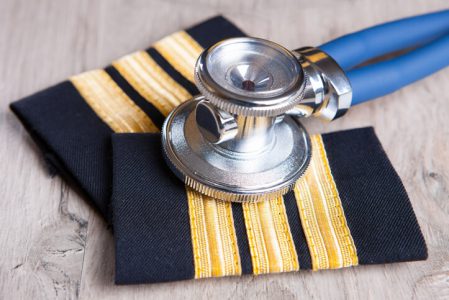Don’t gamble with your pilot medical, review the 2020 list of updated FAA approved medication
It’s that time of year again – flu and common cold cases are ramping up across the country and pilots want (and need) relief. But we have to be careful that our chosen medication does not affect our pilot medical eligibility. To make it easy for us, the FAA publishes an annual list of acceptable and unacceptable over-the-counter (OTC) medications which has been released for 2020.
Obviously, the best and safest course of action is to stay home, sip on chicken noodle soup and sleep all day until we feel better. Remember, we are all obligated to self-certify our fitness to fly before each and every flight and feeling under the weather is a huge red flag. If that is not practical, however, the list of approved medications might be the next best thing.
It is also critical for the pilot to pay attention to the required waiting periods after taking certain medications. This information can also be found in the FAA Approved list, but it is up to the pilot to track his/her medication frequency.
Some OTC medications that advertise 12-hour effectiveness require a full 60 hours before flying – that’s more than 2 days. Other short-duration doses require a 30-hour lag time, more than a day – I’m not sure that most pilots know this.
The list that the FAA publishes each year includes the most common OTC medications. They are listed under their brand names and drug types and are divided into “GO” and “NO GO” lists. Unfortunately, if a medication has a sedative effect, it’s going to be on the “NO GO” list – most cold and flu medications fit squarely in that list. It is also important to realize that brand names are not one size fits all and must be checked individually, based on the ingredient list on the label.
Before you choose to disregard this list and make your own determination regarding your pilot medical legality, you should know that cold remedies are the most common types of drug impairment found in crash investigations. The FAA says that if you have any doubts about the safety of your medication, contact your Aviation Medical Examiner.










